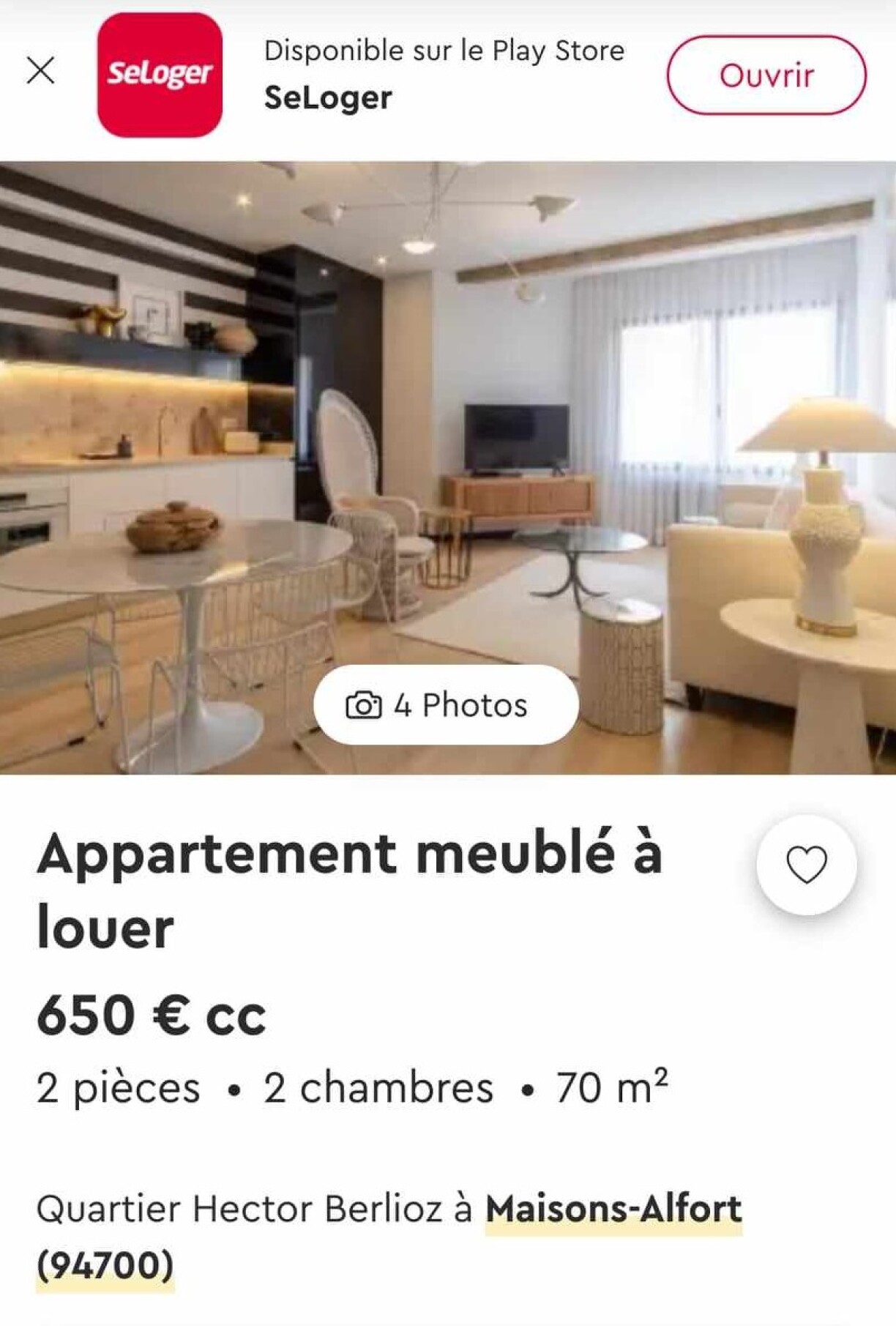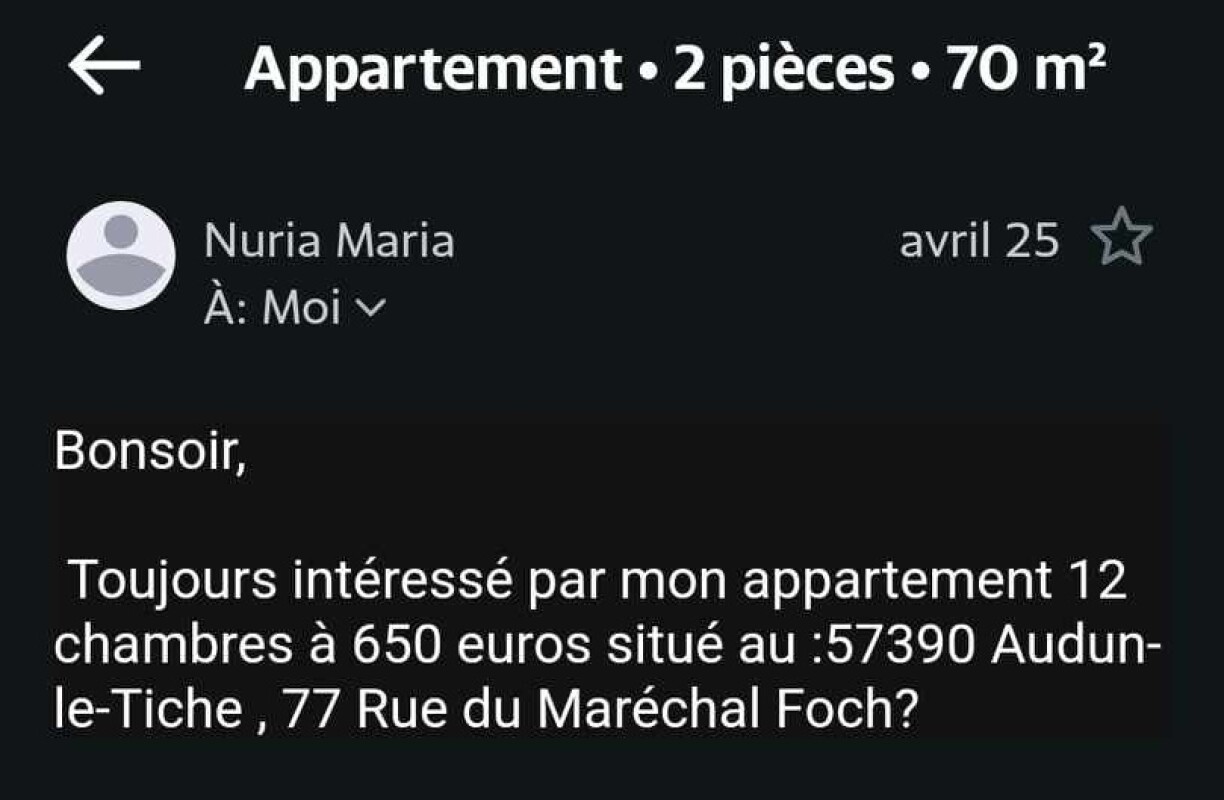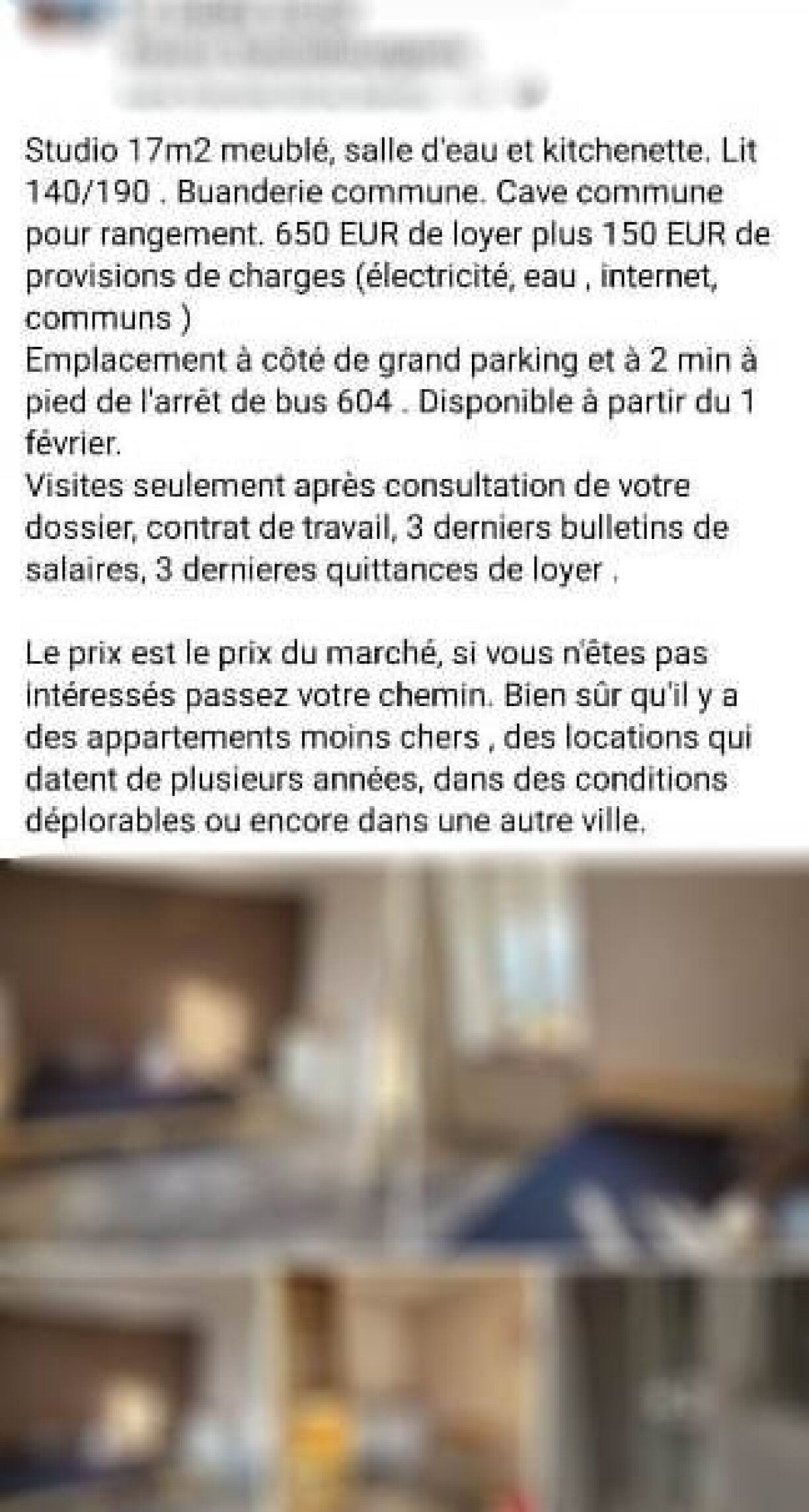
The surge in housing demand along the Franco-Luxembourg border has become a magnet for opportunists, as revealed by our colleagues from RTL Infos. Their report sheds light on an alarming trend of fraudulent housing advertisements, victimising unsuspecting tenants.
It’s the kind of ad that makes you rub your eyes to make sure you’ve read it right: €650 a month for a furnished 70 m2 flat in Audun-le-Tiche? That’s well below the market price for a “two-room, two-bathroom flat in a very quiet area close to shops.” What’s more, the photos show a very cosy, tastefully decorated flat... What a bargain!
But, blinded by this unbeatable price, there’s a risk of skimming over the advert (see above), which contains a number of quirks: “All taxes are included in the price, water, wifi internet, as you can see, the flat is fully equipped with all the electronics you need for a dream house, pets are accepted,” it reads. Taxes and water included? All the electronics you need for a “dream house”? (Wasn’t it supposed to be a flat?). It’s hard not to suspect a scam.
To find out more, our colleagues from RTL Infos posed as prospective tenants and responded to the advertisement posted by a company named “Parceleo,” based in Montpellier, on SeLoger.com.
A few days later, they received a rather bewildering reply (see below) from a certain “Nuria Maria": “Are you still interested in my 12-room flat at €650?” 12 rooms, no less... Our colleagues replied that yes, they were still interested. But since then, total silence from the scammer. It has to be said that, in the meantime, the ad site SeLoger.com had taken action. The site informed our colleagues by email that the ad was “immediately withdrawn” because of “fraudulent behaviour.”

Following up on the suspicious advertisement, RTL Infos contacted the company named in the ad. Ronan Malaval, a partner at Parceleo, confirmed instantly: “We’ve been hacked.” Malaval explained that hackers had gained unauthorised access to their business account, resulting in the publication of 168 fraudulent rental ads in their name in a single day. All these ads were virtually identical, with only the address changing (see below, with the identical ad but in Maisons-Alfort in the Paris region). “We quickly realised this and deactivated the account that same evening, and the ad was withdrawn by SeLoger two days later,” Malaval went on to say.

When asked about pressing charges, Malaval expressed reluctance, citing minimal impact and logistical challenges: “It damages our reputation a bit, but it doesn’t represent much in terms of impact. Luxembourg is a long way away for us. We’re in the south of France, and we don’t even deal with rental ads; we sell plots of land.”
Malaval shed light on the modus operandi of scammers: “Generally, what they do is hack into the estate agency’s account, and change the contact email to their own. And then they only communicate via e-mail.” Victims, responding to deceptive e-mails posing as legitimate correspondence from the agency, are lured into sending requested documents. Subsequently, they are informed that their application has been approved, but are then instructed to pay an “advance” as the agency is located far away. This is how the victims are swindled out of their money for a completely fictitious property.
Mourad Icher, an estate agent with “Real Estate,” was the one who alerted our colleagues to this fraudulent advert. According to Icher, these deceptive ads often promise furnished flats with all amenities at below-market prices, supposedly managed by agencies based far away from the region. “It’s a recurring pattern,” Icher explains, revealing that he has encountered similar scams himself and “tested” them by posing as a prospective tenant. Eventually, the scammers ask for some sort of payment in advance, “And because it’s well done, people fall for it, especially as demand for accommodation is very high in the area.”
It is no coincidence that these scams particularly target the border towns of the Grand Duchy: “It’s a very dynamic area and very dense in terms of property transactions,” Icher notes. As proof, “I know that, in this area between Metz and Longwy, there are agents who work for major property groups and who are in the top 5 or even top 3 sellers nationally.” This is a remarkable fact, considering that one would assume to find such hyper-performing agents primarily in larger urban centres like Lyon, Paris, or Marseille. “There’s a lot of money flowing in sales and rentals, and that also attracts people with bad intentions. Scammers target this type of area where they have a better chance of finding victims,” according to Icher.
Especially as there are “people who come from very far away to settle at the border and work in Luxembourg, and some are only there for a few months.” These workers “may find themselves in urgent need of accommodation, so they jump at the first opportunity, saying to themselves, well, this is a bit unusual as a property advertisement, but I’ll try my luck, I’ll pay the application fees in advance, at worst I’ll lose this money but it’s worth a try.”
In addition to fraudulent schemes, workers seeking accommodation along the border can also fall victim to opportunistic landlords exploiting the high demand to inflate property prices. The mayor of Villerupt recently highlighted an egregious case—a 17m2 flat in Audun-le-Tiche rented for an exorbitant €800. This exploitation of desperate tenants is also a source of concern for Mourad Icher, who shares the community’s outrage.

Icher underscores the plight of workers from communities such as Cape Verde and Niger, who are heavily represented in the Grand Duchy’s workforce, particularly in sectors like construction: “They’d like to move to Luxembourg because they work there, but when they respond to advertisements in Luxembourg, their file doesn’t get through: no stable employment, temporary work, not enough income, etc. So, they cross the border where the French landlords are less demanding.” And why are they less demanding? “Because, in return, the landlords can afford to charge above-market rents. For these clients, the rents are still affordable, and they are less likely to question the inflated prices due to their unfamiliarity with the local market,” Icher explains.
It is evident that the property market in the border area is becoming more and more like the Wild West: in this modern-day gold rush, charlatans are looking to make a quick buck, some believe that all bets are off, and newcomers have to be wary of the vultures ready to swoop down on them...